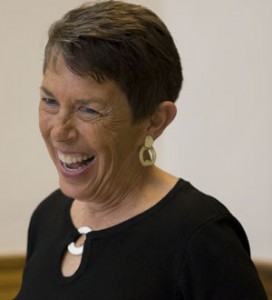 One day last week I got a call from one of the ladies running Starlight, the center where Joseph spends his days. She said he’d been acting extremely hungry of late—even to the point of trying sometimes to take food away from his peers. She wanted to know if I had any thoughts on that.
One day last week I got a call from one of the ladies running Starlight, the center where Joseph spends his days. She said he’d been acting extremely hungry of late—even to the point of trying sometimes to take food away from his peers. She wanted to know if I had any thoughts on that.
I recalled that we’d seen something similar during Joseph’s last weekend home with us. We couldn’t keep that guy out of the kitchen, even after he’d already polished off a lot more food than anyone else, or maybe even everyone else combined. Now, he’s always had a healthy appetite, but this fixation was something new.
What was going on? I pondered a while and then posted a query to an email discussion group. This suggestion came back:
Is it possible he is mistaking pain for hunger? Perhaps a GI check to make sure nothing is going on?
Someone else wondered whether parasites could be involved.
After a delay, I reached Joseph’s doctor (whose latest word on WATB, by the way, was that it was too emotionally challenging for him to read past the first chapter, being the father of a little one himself). We discussed the situation and he promptly ruled out parasites. He thought it wouldn’t be a bad idea to check the blood chemistry, but I gathered that he didn’t expect it to tell us much.
Accordingly, last night I collected Joseph for a rare mid-week visit and took him in to the lab bright and early this morning for a blood draw. I will say that, in the few hours he was with us this time, he showed no unusual interest in food.
Driving him back to Starlight afterwards, I reflected on how very typical this scenario is—not only of most of our life together but also of what I can see of other families like ours. There’s the existing, chronic, low-grade worry that we always live with, and then something new comes along. Something like this could potentially be the symptom of a new complication, and for that reason we can’t just ignore it. At other times, the excitement is sparked by new information (generally in the form of something I’ve read) that merits investigation as a way of learning more about Joseph’s still-undiagnosed basic problem.
For us, every single time this has happened, it has led nowhere. In keeping with that pattern, I expect the doctor will have been right about the blood test telling us nothing. I expect Joseph’s fixation on food will likely taper off. Or if it doesn’t, it will be pegged as yet another behavioral issue.
Because I believe Joseph understands me most of the time, I talked in the car about the apparent futility of all these endeavors. I talked, as I so often do, about how desperately I need him to tell me what he’s experiencing. I told him about the footage, that recently went viral, about the autistic girl who communicates by typing. I sketched out, for maybe the one-thousandth time, the benefits he would enjoy if he had a comparable outlet.
By this time, we had parked across the street from Starlight. I realized that I’d lost Joseph’s attention. He still listened politely, or patiently, but he was looking past me at the building. He wanted to go in there and get on with his day. So we said good bye. Or, rather, I did.
 Mary Kay Shanley is an author and long-time instructor at the University of Iowa’s Summer Writing Festival, where she specializes in memoir. She posted a brief commentary on What About the Boy? at her blog, from which the following is extracted:
Mary Kay Shanley is an author and long-time instructor at the University of Iowa’s Summer Writing Festival, where she specializes in memoir. She posted a brief commentary on What About the Boy? at her blog, from which the following is extracted: One day last week I got a call from one of the ladies running
One day last week I got a call from one of the ladies running 
